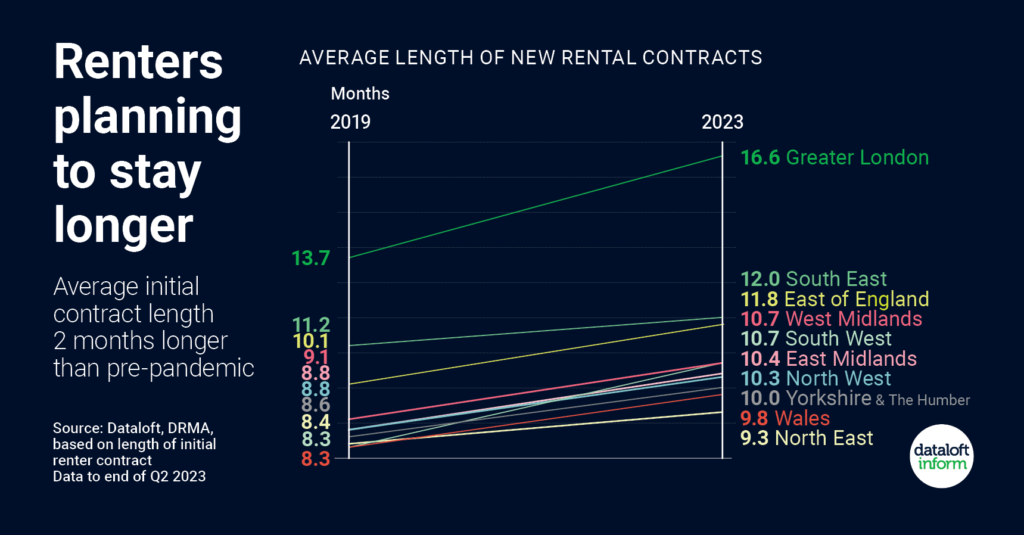
In the second quarter of 2023, there was a noteworthy increase in the average length of initial rental contracts, reaching an impressive duration of 12.7 months compared to 10.5 months recorded during the same period in 2019. This substantial rise can be attributed to various factors, including the scarcity of available rental properties and the surging rents in the open market. Consequently, renters have adapted their approach by opting to prolong their stay in these highly sought-after accommodations.
When it comes to the desire for extended tenancies, it is particularly evident in the vibrant city of London, where the rental landscape is characterized by intense competition among tenants. The prevailing circumstances have led renters in the capital to prioritize securing their housing for the longest possible duration, considering the challenges they face in finding alternative options.

A notable development in the realm of rental regulations is the proposed enactment of the Renters (Reform) Bill, which introduces a significant change in the structure of rental agreements. Specifically, the bill aims to eliminate the concept of fixed-term Assured Shorthold Tenancies (ASTs), thereby allowing renters to benefit from open-ended contracts that offer greater flexibility and adaptability to their evolving needs. This forward-thinking approach seeks to address the demands of modern renters and provide them with a more accommodating and accommodating housing experience.
These insights are drawn from the comprehensive Dataloft Rental Market Analytics, which provides valuable data and analysis on the rental market. The information presented here reflects the latest data available, encompassing the period up until the end of the second quarter of 2023.



